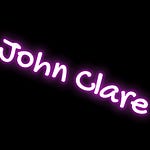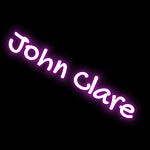We cant get to grips with real estate in any meaningful way unless we get a firm grip on money and how to use it. There are some very simple, and indeed obvious ways to leverage money to your advantage. Most people simply dont get these simple aspects of a very useful commodity. I hope I can help you change your attitudes for the better. So let’s get started.
How about defining money to start with.
We need to think about what money really is. Since it relates to value, and value is usually described by numbers, we can accept that the best way to describe money would be in terms of a mathematical formula. The best indication is that:
Money is an equals sign
What am I implying by that statement?
This cup of coffee costs some money; Coffee = $5
This house costs $250,000: House = $250,000
And so on...
Once you start thinking of money in terms of maths you can start making equations, and you will find that money can do all sorts of interesting things. I’ll come back to this point. But if you start using mathematical equations as an aid to thinking about alternative ways of presenting and defeating problems, you will find an equals sign very important.
What else is money?
Money is a servant
In fact money is maybe the best servant you will ever find. I can never understand why so many people insist in getting rid of such an amazing servant. I am sure that if more people understood this aspect of money they would not be so quick to spend (get rid of) it.
Once you realise money is a mathematical equals sign and a servant you can put the two concepts together and you will have a very interesting structure that you can use to your benefit.
Once you start to look at money as a servant, you can add many of the qualities of a servant to those of physical cash, and you start to discover some very interesting possibilities.
For instance, if you think of money as an equals sign you can start creating all kinds of equations that stand for ideas and projects. You can convert those prose statements into numbers or algebraic functions. Once you start using logical constructs you can start to follow all sorts of creative ideas, and use the equations to solve problems.
Let me give you an example. I was presented with a problem, and I needed to construct a way of solving that problem.
First: what was the problem?
Second: could I construct a proposition which encapsulated the problem, and could also be turned into a mathematical formula?
Third: could I then substitute numbers for the terms of the formula which would then allow me to solve the equation?
Finally, could that equation present me with a result that made money? In other words would the mathematical formula give me a positive number to the right of the equals sign?
This is how you construct such a deal.
One more principle before we get going.
The average person works to make money. The rich person makes money work for him/her. In short, why work when you can get money to work for you?
Ok, let’s get started.
There is a house which the family wished to buy. This was a long time ago, but it is the principle that matters not the numbers themselves. The house has enough rooms so that bedsits could be made from some of those rooms, and at the time a weekly rate for a similar bedsit was about £4. (Yes, this was a long time ago. This was before the great currency depreciations we have seen since those days.)
The land can be rented out to a farmer. What was the rent possibility there?
Not only that, but there were two cottages on the estate, which also could be rented out.
The estate was for sale for the princely sum of £15,000.
What I was seeking to do was to work out what a mortgage would cost on the place, and how much money could be raised from the property. Would it be enough to cover a mortgage? If so, we could set up the deal and other people would pay for our new home.
That was the plan. It seemed not only a good idea, but perfectly possible.
I needed an equation where the figure on the right of the equals sign was positive. In other words, in terms of simple language I needed a formula like this:
(Land rent+room rents+cottage rents)-(mortgage interest+repayments)=X
X, of course, needed to be a plus figure.
Before we carry on with the actual calculations do note that when I talk about maths and equations I am really talking about converting ordinary language into very simple formulas. This is not difficult.
I soon found that I didn't even need everything available to get a plus result.
We could raise a ten percent deposit. That was not a problem, so we needed a mortgage of £13,500. The interest rate would have been about 9% back then. In other words, a twenty year mortgage plus interest would cost roughly £2,000 a year. The room rents alone would produce £3,600.
Not only would the renters pay for our new house, but we’d have a rather nice income over and above that needed to satisfy the mortgage payments as well.
We have the proposition, quoted above, in text format, but let’s convert the text to numbers: 3600 - 2000 = £1,600
Add in the house rentals for the estate cottages, plus something for renting out the land, and we could cut down the room renters to just occupying one wing. Now compute the sum with the cost of a thirty year mortgage and the income increases even more.
All we have done is convert an idea into a mathematical formula and we have achieved a success. What this has also done is introduce us to a few more essential concepts in our search for ways to create money, and solve problems. Next week I’ll analyse a similar situation in a slightly different way to show you what I mean.
See you then.










